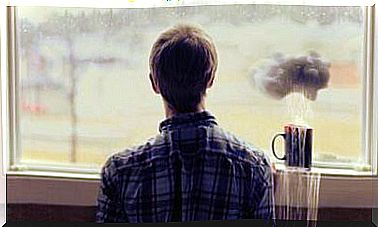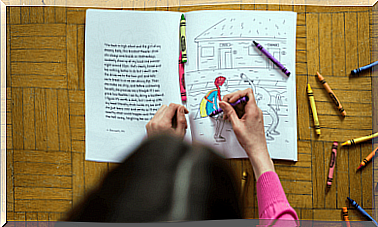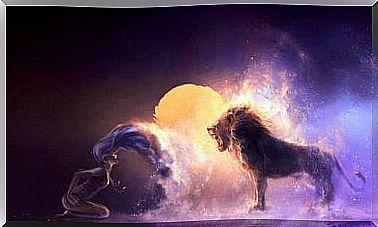When Melancholy Takes Hold Of Our Mind

There is nothing poetic or inspiring about melancholy. It is a formless void, an aspiration of yesterday that completely blurs the present. Few states immerse us in characteristics such as stillness, fatigue and psychological exhaustion to the point of forming a very characteristic subtype of depression which in many cases can be quite severe.
Victor Hugo said that melancholy is the happiness of being sad. Stendhal was of the opinion asserting that those who dedicated themselves to writing, painting or poetry were people prone to melancholy. As we can see, this emotional state has always been linked to the natural drive that connects the human being to creativity. Which connects him to this virtuoso and deep side of his being, allowing him to make beneficial use of sadness.
The romantics of the time believed that without melancholy the ink was over. However, our artists of the day forgot that the Greeks used this term to diagnose what we know today as depression. Hippocrates suggested that melancholy was an excess of black bile, the one that caused a person to be sad, afraid, unmotivated, etc.
Sigmund Freud later began to explore this idea further to give it a genuine clinical basis. Melancholy, however, is not simple sadness. It is not a motor state capable of bringing out our muses. Melancholy is like the cinematographic metaphor that Lars Von Trier left us in his famous film. A planet called depression which at one point or another can collide with us to destroy everything.

When melancholy knocks on our door
We are all likely to experience sadness at some point. Everyone can feel this emptiness which collects nostalgia and where memories of yesterday creep in, thus making us see the present with a halo of sorrow. Generally, these states are ad hoc and limited in time. Psychologists remind us that although sadness is often reflected in a halo effect (it covers everything), it can allow other affects, other thoughts and other motivations to surface.
When melancholy takes hold in our lives, it leaves room for nothing else. The person ceases to experience pleasure, curiosity, interest… Silber, Rey, Savard and Post (1980) define the melancholic state as “emotional inaccessibility”. In fact, the person presents a clear impossibility to experience any kind of affect and even sadness. In fact, one faces a complete emotional alteration.
On the other hand, it is worth pointing out an even more important fact. In the new edition of DSM-5 (Diagnostic and Statistical Manual of Mental Disorders), melancholy appears described as a subtype of major depression. Those who do not agree with this classification prefer to see it as an affective disorder similar to and separable from depression. Whatever it is, we must bear in mind that we are dealing with a depressive disorder with rather clear characteristics. Let us present them in the following.

What symptoms does melancholy present?
As mentioned above, the main characteristic of a melancholy person is the inability to experience affect. There is no profit, no interest, no emotion associated with sadness that could cause tears or expression of unhappiness. Melancholy is stillness, emptiness and a permanent haze that the person cannot define.
- It also highlights psychomotor retardation, difficulty reasoning, physical exhaustion and mental permanent.
- Another common characteristic is the inability to explain the condition, to connect with internal reality and to be able to communicate by putting words to the situation, to the feeling.
Finally, a fact that generally differentiates melancholic depression from other depressions is the inability to think. In other depressive disorders, patients experience a large number of nervous, obsessive, or exhausting thoughts which sometimes lead to suicidal thoughts. In melancholy this does not happen.
In the words of psychologist Giovanni Stanghellini ” If major depression is a shipwreck with a spectator, melancholy is comparable to a shipwreck without a spectator “. In fact, if the depressed tries to find meaning in his depression, the melancholy person is closed in on him, sees and feels nothing.

Melancholy and the therapeutic approach
The treatment a melancholy person will receive will basically depend on their diagnosis. As we know, there is no one type of depression. When melancholy comes across as a descriptive category, then, many things can happen. The first is that we are dealing with a patient suffering from major depression, bipolar melancholic depression, Cotard syndrome or delusional or non-delusional melancholy.
Everything will undoubtedly depend on the valuation given by the professionals and the particular case of the patient. In most cases, the root of this clinical condition is biological. People therefore respond very well to pharmacological treatments. Cognitive behavioral therapy is also a strategy that shows good results.
Finally, and in the most serious cases such as deep depression, it will be necessary to have recourse to psychiatric treatment and closer and constant monitoring. In all cases, we are faced with a psychological condition which affects 2% of the population and which generally responds well to the therapeutic approaches that we currently have.









